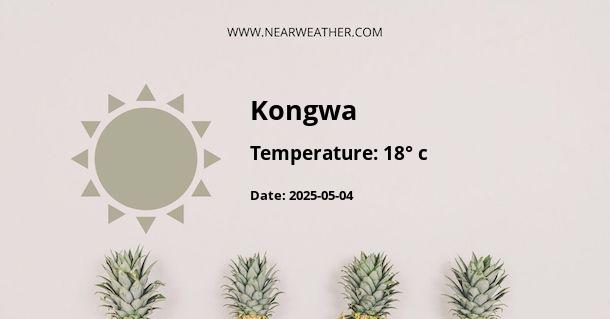Overview of Kongwa, Tanzania
Kongwa, located in the Dodoma Region of Tanzania, is home to a diverse and unique climate. This semi-arid region is characterized by distinct seasonal variations and weather patterns, making it an interesting case study for climate enthusiasts and researchers alike.
Geographical Location
Situated in central Tanzania, Kongwa is approximately 4.23 degrees south of the equator and 36.38 degrees east of the prime meridian. This geographical location significantly influences its climate, contributing to its unique weather conditions.
Climate and Weather Year-Round
Kongwa experiences a semi-arid climate (BSh) under the Köppen-Geiger classification. This climate type is characterized by relatively high temperatures throughout the year, with significant precipitation differences between the seasons.
Seasonal Variations
There are two main seasons in Kongwa: the rainy season and the dry season.
The rainy season typically begins in November and ends in April. During this time, the area can receive up to 600mm of rain. The heaviest rainfall usually occurs in March.
The dry season spans from May to October. During this period, rainfall is scarce, and the landscape becomes arid and dry. Despite the lack of rain, temperatures remain high throughout the period.
Temperature and Rainfall
Temperatures in Kongwa are relatively high throughout the year. The average annual temperature is around 23°C (73.4°F). The warmest month is October, with an average temperature of 25°C (77°F), while the coolest month is July, with an average temperature of 21°C (69.8°F).
The average annual rainfall is approximately 600mm. As mentioned earlier, the majority of this rainfall occurs during the rainy season from November to April.
Impacts of Climate on Lifestyle and Agriculture
The climate in Kongwa significantly impacts the lifestyle and agricultural practices of its residents. The semi-arid climate and distinct seasonal variations necessitate adjustments in farming practices and daily life.
The majority of Kongwa's population is engaged in farming activities. The primary crops grown include maize, sunflower, and beans. The rainfall pattern influences the cropping calendar, with most planting occurring at the start of the rainy season.
Climate Change and Its Implications
Climate change is a pressing concern globally, and Kongwa is no exception. Changes in rainfall patterns and temperature increases can have profound impacts on the region's agriculture, water resources, and overall livelihoods.
Given the reliance on rain-fed agriculture, any alterations in rainfall patterns can significantly impact food security in the region. Moreover, temperature increases can exacerbate water scarcity issues, further affecting the region's agricultural productivity.
Conclusion
In conclusion, Kongwa's semi-arid climate, characterized by distinct seasonal variations and high temperatures year-round, plays a significant role in shaping the region's lifestyle and agricultural practices. With the looming threat of climate change, understanding these climate patterns becomes increasingly important to ensure sustainable development and resilience in the region.
Further research and continuous monitoring of Kongwa's climate are necessary to mitigate the potential impacts of climate change and to implement effective adaptation strategies for the benefit of its population and the surrounding ecosystem.
A - Kongwa's Latitude is -6.200000 & Longitude is 36.416672.
A - Weather in Kongwa is 32° today.
A - Climate Conditions in Kongwa shows clear sky today.
A - Humidity in Kongwa is 25% today.
A - Wind speed in Kongwa is 15.16 km/h, flowing at 88° wind direction. today.
